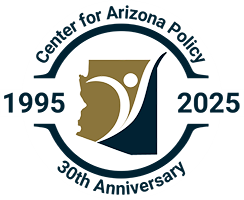For Immediate Release
Monday, June 15, 2020
Contact: Cathi Herrod
A Statement from Center for Arizona Policy President Cathi Herrod
Today, the U.S. Supreme Court did what the U.S. Constitution reserves for Congress; it made legislation when it issued its decision in three Title VII cases.
Title VII prohibits discrimination in employment “on the basis of sex,” and dates back to the Civil Rights Act of 1964. Today’s ruling redefines the term, “sex” and could have a chilling effect on conscience rights, and protections and equal opportunities for girls and women.
While many aspects of the Court’s ruling are troubling, the most concerning is the fact the Court, again, has shown its inclination to make law, not interpret law.
Congress has struggled with this issue for years, not being able to muster the votes to change the law of the 1964 Congress. Instead of allowing the debate to play out in the branch designed to make law, six justices of Supreme Court took it upon themselves to legislate from the bench.
Consider the following from the dissent written by Justice Alito with Justice Thomas agreeing:
“There is only one word for what the Court has done today: legislation.”
“A more brazen abuse of our authority to interpret statues is hard to recall.”
“The question is not whether discrimination because of sexual orientation or gender identity should be outlawed. The question is whether Congress did that in 1964.”
Over the next few days, our policy team will continue to analyze the decision to determine its impact on Arizona law and specifically on faith-based employers like churches, schools, and para-church ministry.
Center for Arizona Policy promotes and defends the foundational values of life, marriage and family, and religious freedom. For more information, visit azpolicy.org. ###

